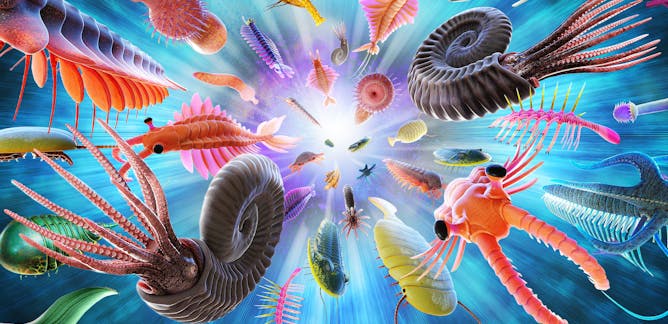
Articles on Humans
Displaying 1 - 20 of 39 articles

We may have become the most complex living creature in part by accident and replication of error.

Some footprints last thousands or even millions of years, preserved in sand that turned to rock.

Humans must kill animals in many cases, but they can still modify their behaviours to improve the welfare of animals while they are alive.

Four graphs that show us how humanity’s impact on the planet is growing.

Lockdown wasn’t good news for London’s peregrine falcons.

Our lives are intertwined with animals, insects and birds – we should consider them more when we design our cities.

By learning what parts of the brain are crucial for imagination to work, neuroscientists can look back over hundreds of millions of years of evolution to figure out when it first emerged.

The Nobel Prize in physiology or medicine for 2022 has been awarded to Svante Pääbo, whose discoveries have been pivotal to the way we understand our evolutionary history.

Rainwater may be contaminated with chemicals and scientists are still uncertain about their effects.

Children are taught to value the lives of other species less, according to a new study.

Several scholars weigh in with tips on how to support college students’ emotional well-being during the pandemic.

A new study finds more than one early human species lived on the landscape in Northern Tanzania 3.66 million years ago. But there are reasons to be cautious about the findings.

Walking has taken a very long time to develop, with evidence of bipedalism among early humans in Africa roughly 4.4 million years ago.

It is important to remember in this time of crisis that the need for social connection is vital.

Our biggest evolutionary advantages are an ability to walk on two legs and our big brains.

If all of humanity was wiped out tomorrow, it’s estimated that the natural world would take at least five million years to recover from the damage humans have done to the world.

Language can express some of the results of our thinking, but it’s not the thinking itself.

Cats and humans have different ways of communicating and sometimes that can lead to problems.

Having different coloured eyes is quite unusual, but it happens in many species throughout the animal kingdom.

Understanding the evolutionary roots of what draws us to delusions of legacy and distractions of leisure will help us address the environmental challenges of the 21st century.
